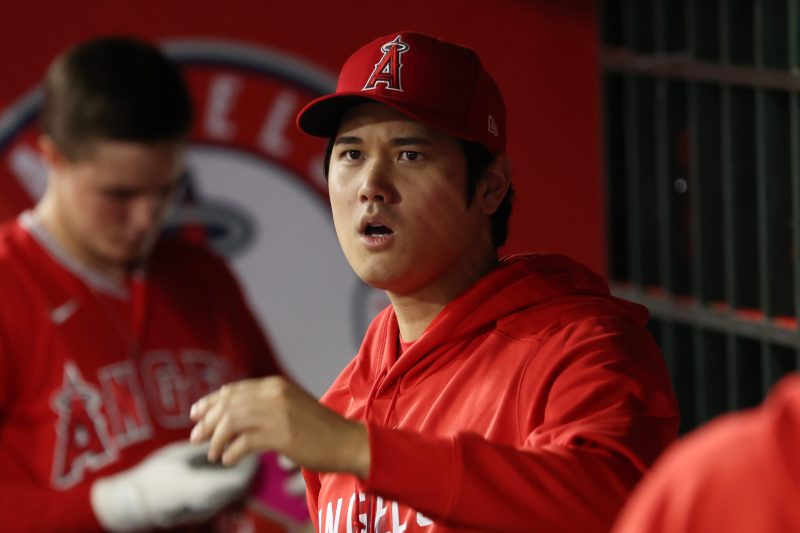
From Shohei’s opt-out to ‘end of the world’: Unusual sports contracts
MLB superstar Shohei Ohtani rocked the sports world in signing a 10-year, $700 million contract with the Los Angeles Dodgers. The 29-year-old pitcher and power hitter’s record contract came with a few unusual conditions, not the least of which is $680 million getting deferred until after the 10-year contract is up.
But that’s not the only oddity in Ohtani’s deal. Here’s a look at what else it includes – plus a few other unusual clauses in contracts from other sports.
What clauses are in Shohei Ohtani’s contract?
NFL STATS CENTRAL: The latest NFL scores, schedules, odds, stats and more.
Ohtani’s contract also gives him a suite at Dodger Stadium, provides for an interpreter, and states donations to club charities will not exceed one percent, per Ken Rosenthal.
Kyler Murray’s ‘independent study’
The Arizona Cardinals came under fire for including an ‘independent study’ clause in Murray’s five-year, $230.5 million extension signed in 2022.
The clause mandated that Murray complete at least four hours of game film per week to prepare for the team’s next game. In this time, Murray could not specifically be ‘engaged in any other activity that may distract his attention (for example, watching television, playing video games or browsing the internet) while such material is being displayed or played.’
Arizona eventually removed the clause from Murray’s contract. Team officials said in a statement that it ‘was clearly perceived in ways that were never intended. Our confidence in Kyler Murray is as high as it’s ever been and nothing demonstrates our belief in his ability to lead this team.’
Ichirzo Suzuki’s rent clause
By 2007, Suzuki had racked up a sizable number of awards. Six consecutive All-Star game and Gold Glove awards as well as one AL MVP and AL Silver Slugger nod in his first six seasons in the majors.
Despite the Seattle Mariners’ struggles at the time, Suzuki signed a five-year, $90 million extension with the team. Clauses in that deal included a personal trainer, interpreter, four round-trip airline tickets to Japan each year, and either a new Jeep or Mercedes SUV.
But most unusual of all, Suzuki received at least $32,000 per year as a housing allowance. Current median Seattle rent prices aren’t too far from that but in 2007 that was a big boost to ensuring Suzuki had his pick of housing options.
Michael Jordan’s ‘love of the game’ clause
Jordan enjoyed unprecedented success on the court: six NBA titles, five NBA MVPs, 14 All-Star teams, two Olympic Gold Medals, and an NCAA title, among many other accolades. The icon could seemingly do no wrong on the court.
He didn’t want to confine himself to just NBA or international basketball courts and even got that in writing. Jordan had a ‘Love of the Game Clause’ written into his contract with the Chicago Bulls that allowed him to play basketball against anyone, anywhere, at any time.
Rick Mirer’s ‘end of the world’ clause
A three-year starter at quarterback in college, Mirer wrapped up his Notre Dame career with comparisons to fellow Irish legend Joe Montana. The Seattle Seahawks drafted Mirer second overall in the 1993 NFL Draft.
Luckily, he didn’t need to find out what American dollars would be worth post-apocalypse. Mirer played four seasons with the Seahawks and didn’t live up to lofty expectations, going 20-31 as a starter.
Monica Abbott’s crowd clause
Abbott is one of the best pitchers in American softball history, winning two Olympic Medals and three Women’s Softball World Cup gold medals. Her NCAA records for strikes and wins still stand 15 years after she graduated from the University of Tennessee.
She started her professional career in the National Pro Fastpitch (NPF) softball league in 2007. By 2015, she’d won three MVP awards and four championships.
So it’s no surprise the expansion Scrap Yard Dawgs signed her to the first million-dollar contract in league history ahead of the 2016 season. The six-year, $1-million contract started out as just $20,000 yearly. With a salary cap of $150,000 per year, the Houston-area team had to get creative to meet the $1 million total.
The solution? Attendance bonuses requiring at least 100 fans at the game, regardless of location or whether or not Abbott was pitching. It paid off with a championship for the expansion team in 2017.
